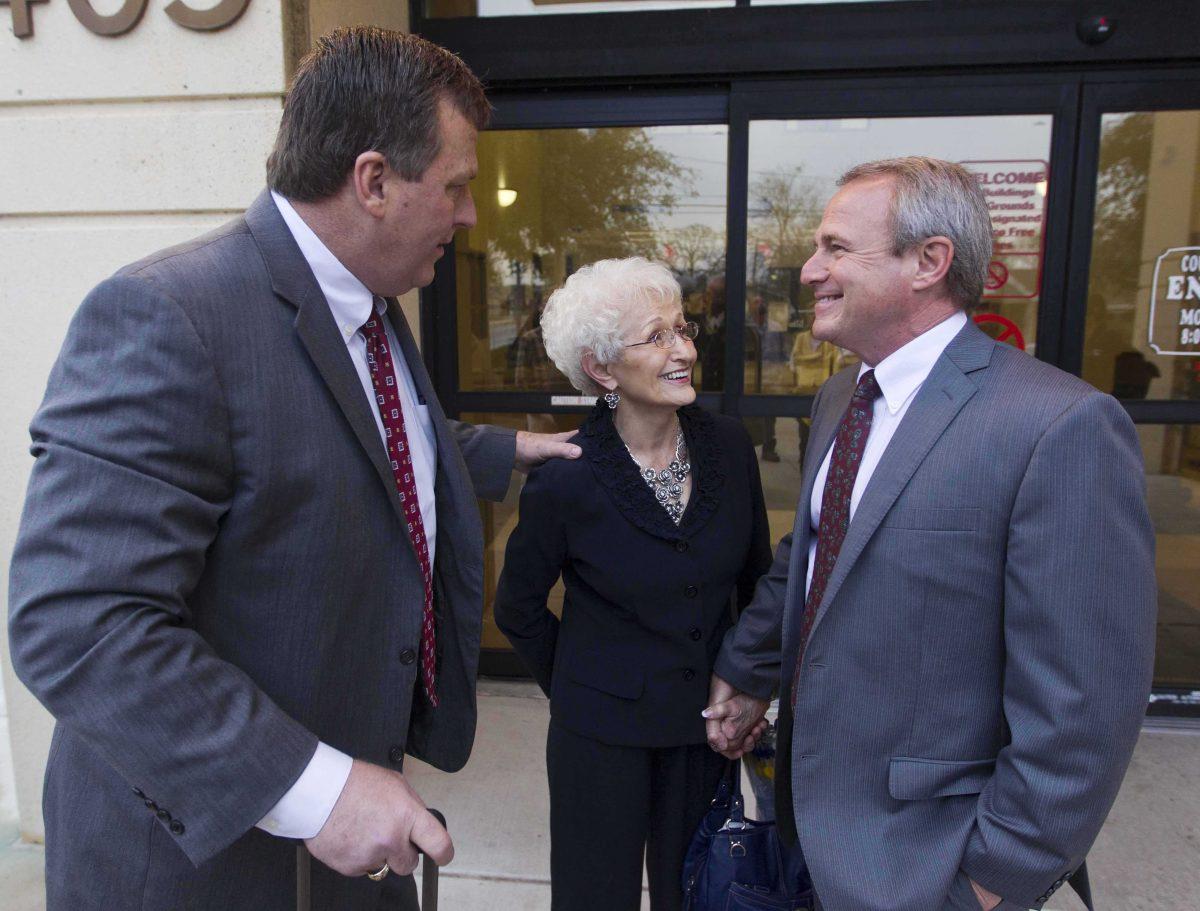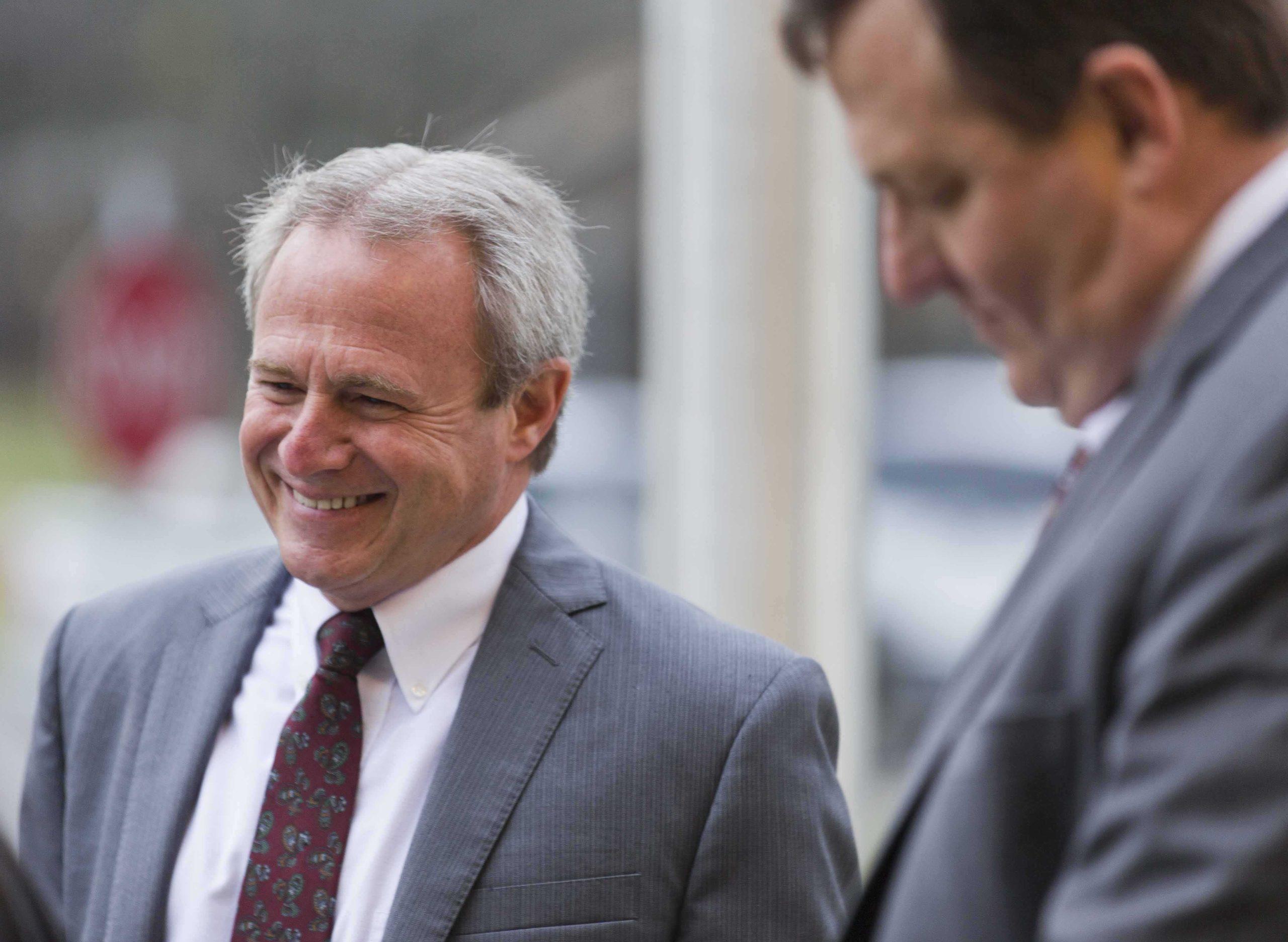GEORGETOWN, Texas (AP) — A Texas man who was wrongfully imprisoned for nearly 25 years for his wife’s murder told a judge Monday that neither he nor his legal team knew authorities were aware that his then 3-year-old son had witnessed the 1986 slaying and indicated it was a “monster” and not his father who committed the crime.
Michael Morton testified about what his son knew during the first day of a special court proceeding that will determine whether the ex-district attorney — now a judge — who prosecuted the murder case could face criminal charges for allegedly hiding evidence.
The rarely used court of inquiry began Monday and could last a week. The special court is used when officials and public servants are accused of wrongdoing. The process is similar to a grand jury proceeding but people can defend themselves against the evidence presented.
In this case, District Judge Louis Sturns, of Fort Worth, will hear evidence and decide whether Judge Ken Anderson acted improperly when he was district attorney for Williamson County. Sturns could refer the case for possible prosecution if he determines Anderson committed a crime.
Morton, 58, was released in October 2011 after new DNA tests showed he didn’t kill his wife, Christine, who was beaten to death in the couple’s north Austin home.
His lawyers have accused Anderson of intentionally hiding evidence, including statements from the couple’s son, Eric.
Anderson has apologized to Morton but has denied any wrongdoing. He has been a district judge since 2002 in Williamson County, where Morton was convicted.
Houston defense attorney Rusty Hardin, the special prosecutor in the case, asked Morton whether he or his trial attorneys knew his mother-in-law, Rita Kirkpatrick, told the lead investigator that Eric told her that a “monster” had become mad and “hit mommie.” Kirkpatrick had asked her grandson if Morton was present during the murder, and the boy said, “No, Mommy and Eric was there.”
“During your trial, during the 25 years you were in the penitentiary, did you know there was a tape and a transcript in sheriff’s files about his conversation?” Hardin asked.
“No sir, it’s a complete shock to me,” Morton said.
Morton also said he didn’t know investigators had been told neighbors saw a man park a green van near the Morton home and walk into a wooded area behind it.
Morton became emotional as he talked about not seeing his son during his time in prison and said he didn’t want revenge against Anderson but that there needs to be accountability for what happened to him.
“I ask that you do what needs to be done. But at the same time to be gentle with Judge Anderson,” Morton, who began crying, told Sturns.
Anderson’s attorney, Eric Nichols, suggested Morton’s trial lawyers were aware Morton’s son might have seen something but chose not to pursue this in their defense.
Nichols also suggested memories about what happened 25 years ago in Morton’s case “may not be reliable” and said the Innocence Project, a New York nonprofit that helped secure the DNA testing that freed Morton, is pushing the case against Anderson.
While questioning Morton, Nichols pointed out that two claims about hidden evidence turned out not to be a “bombshell.” One claim focused on a check made out to Christine Morton and cashed after she died that was later determined had been cashed by her husband. The second claim — that one of Christine Morton’s credit cards was used after her death — turned out to be false. Nichols said Christine Morton’s purse, with her credit cards and checkbook, had not been stolen. Michael Morton said he was never told by authorities they had taken the purse as evidence and he had believed it was missing.
“You have no interest in anyone being prosecuted based on insufficient evidence?” Nichols asked Morton, who responded, “Correct.” Morton spent most of Monday on the witness stand.
Hardin said Nichols’ criticism of two defense claims that did not pan out while others ended up freeing Morton reminded him of “a child who kills his parents and complains about being an orphan.”
The court of inquiry was to continue Tuesday.
Morton’s Houston-based attorney, John Raley, spent years working for free on the case, pushing for testing of a bloody bandanna found near the Morton home. Raley later teamed up with the Innocence Project.
The new DNA tests pointed to another suspect, Mark Alan Norwood, who was arrested in November 2011 for Christine Morton’s murder. He is set to be tried in March for capital murder. Norwood also has been indicted in a separate 1988 slaying of another Austin woman who lived close to the Morton home.
Anderson also is being sued by the State Bar of Texas for his conduct in the Morton case.






